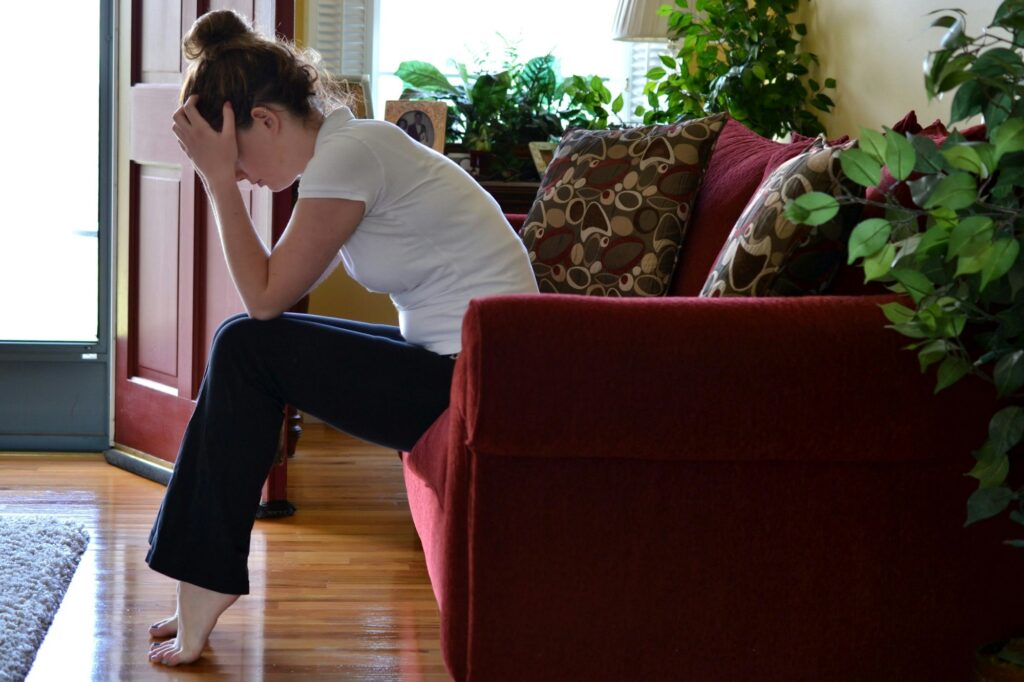In the bustling world we live in, where social interactions form the crux of our daily lives, it’s not uncommon to find young people wrestling with the invisible chains of social anxiety. This common mental health disorders, often brushed off as mere shyness or a phase, can deeply affect a teenager’s life, from their academic performance to their ability to make new friends. If you’re reading this, chances are you’re looking for ways to support a teenager close to you who might be facing this challenge. Let’s navigate this journey together, exploring different ways on how to help a teenager with social anxiety, making their world a little less daunting and a lot more welcoming.

Understanding Social Anxiety in Teenagers
Social anxiety in teenagers is more than just shyness. It’s characterized by extreme self-consciousness and anxiety disorders in social situations. This can range from speaking in front of others, meeting new people, to even making eye contact. The fear of being negatively evaluated or rejected can lead to avoidance of social situations, which, although providing short-term relief, can exacerbate the anxiety in the long term.
Teenagers with social anxiety often experience physical symptoms such as stomach aches, rapid heartbeat, and excessive sweating. These symptoms are not only uncomfortable but can also increase the teen’s anxiety about being noticed or judged by others for these physical signs.
The First Step: Recognizing the Signs
As a trusted adult in a teenager’s life, The first step in helping your teenager is recognizing the signs of social anxiety. These can include:
- Intense fear of social interactions or events
- Avoidance of social situations
- Physical symptoms like stomach aches or rapid heartbeat in social settings
- Negative self-talk and low self-esteem
- Difficulty making eye contact
- Fear of speaking in front of others
Understanding that social anxiety is a common mental health disorder in the United States and recognizing these signs early can pave the way for effective intervention and support.

Strategies to Support Your Teenager
Now that we understand what social anxiety is and how to recognize it, let’s explore strategies to support a teenager with social anxiety. Keep in mind that every teenager is unique, and not all strategies may work for everyone. It’s essential to communicate with your teen and work together to find the best way to help them.
Encourage Open Communication
Creating a safe and non-judgmental space for your teenager to express their feelings and fears is paramount. Open communication is the cornerstone of understanding and effectively addressing your teen’s anxiety. It’s about more than just talking; it’s about listening, validating their feelings, and reassuring them that they are not alone in this battle. Encouraging them to share their experiences can shed light on the specific triggers of their anxiety, whether it’s speaking in front of others, meeting new people, or attending social events. This understanding is crucial in tailoring the support you offer to their needs.
Seek Professional Help
The complexity of anxiety disorders, including social phobia, often necessitates professional intervention. Consulting with mental health professionals, such as clinical psychologists, can provide a lifeline for your teenager. Cognitive behavioral therapy (CBT) stands out as a highly effective treatment, helping individuals to dissect and challenge the negative thoughts and behaviors fueling their anxiety. This therapy can equip your teenager with the tools to face, rather than avoid, anxiety-inducing social situations, marking a significant step towards overcoming social phobia.
Promote Positive Social Experiences
Encouraging your teenager to engage in social activities or extracurricular activities that align with their interests can serve as a gentle nudge towards overcoming their social anxiety. These activities offer a platform for practicing social skills in a less intimidating environment, fostering a sense of achievement and belonging. Starting with smaller, manageable social interactions allows your teenager to gradually build their confidence, making the idea of new social situations less daunting.

Teach Coping Skills
Equipping your teenager with coping skills to manage the physical symptoms of anxiety is crucial. Techniques such as deep breathing, relaxation exercises, and positive self-talk can be powerful tools in their anxiety management arsenal. These skills not only help in alleviating the immediate physical symptoms, such as stomach aches and rapid heartbeat, but also in countering the negative thoughts that can spiral during social interactions.
Role Play and Social Skills Training
Practicing social scenarios through role play can demystify social interactions for your teenager, making them feel more prepared and less anxious about real-life situations. Social skills training further complements this by providing practical advice on making eye contact, initiating conversations, and reading social cues. These exercises can significantly improve your teen’s confidence in navigating social settings.
Limit Social Media Exposure
In an era dominated by social media, it’s important to encourage your teenager to foster real-life connections over virtual ones. The curated lives showcased on social media platforms can exacerbate feelings of inadequacy and anxiety. Encouraging your teenager to limit their social media use can help mitigate these effects, promoting a healthier self-image and reducing the pressure to conform to unrealistic standards.
Encourage Healthy Habits
A holistic approach to managing social anxiety includes promoting a healthy lifestyle. Regular physical activity, adequate sleep, and a balanced diet can have a profound impact on your teenager’s mental health. These habits not only improve physical well-being but also contribute to emotional and psychological resilience, providing a solid foundation for managing anxiety.

Long-Term Support and Understanding
Supporting a teenager with social anxiety is a long-term commitment. Celebrate small victories and understand that setbacks are part of the journey. Providing additional support, whether through therapy, support groups, or simply being there to listen, can make a world of difference in your teen’s life.
Remember, each teenager is unique, and what works for one may not work for another. It’s about finding the right combination of strategies, support, and professional guidance to help your teen navigate their social anxiety. With patience, understanding, and the right support, your teenager can learn to manage their anxiety and thrive in social situations.
Conclusion: A Journey of Understanding and Support
Helping a teenager with social anxiety is a journey that requires patience, understanding, and support. By recognizing the signs, providing a supportive environment, and encouraging professional intervention, you can help your teenager navigate the challenges of social anxiety. Remember, the most important thing is to ensure your teenager feels seen, heard, and supported every step of the way.
As someone who has walked a similar path, I can attest to the importance of these strategies in overcoming social anxiety. It’s not an overnight process, but with the right support and interventions, your teenager can learn to manage their anxiety and thrive in social situations. Let’s be the guiding light for our young people, showing them that while the road may be rocky, they don’t have to walk it alone.
Socially Quirky
Welcome to Socially Quirky! Here's a cozy corner for all you introverts to explore, laugh, and grow. We’re all about celebrating the quiet strength within us. We’ve got lifestyle tips, fun stuff, and tools tailor-made to suit your introvert lifestyle. So, let’s embrace the quiet, find our unique spark, and kick back with folks who get us. Can’t wait for you to join our tribe at Socially Quirky!










